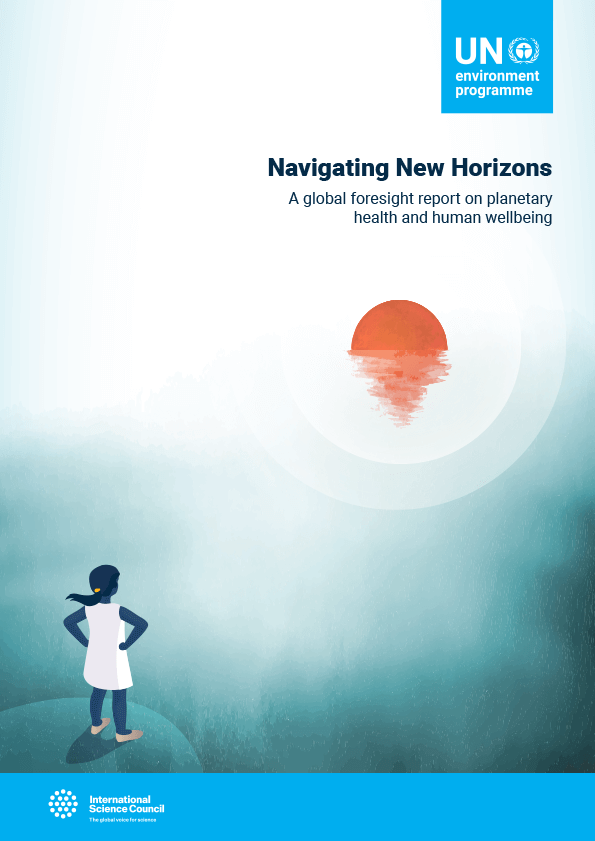
This report identifies eight critical global shifts that are accelerating the triple planetary crisis of climate change, nature and biodiversity loss, and pollution and waste.
Eighteen accompanying signals of change – identified by hundreds of global experts through regional and stakeholder consultations that included youth – offer a deeper glimpse into potential disruptions, both positive and negative, that the world must prepare for.

Navigating new horizons – A global foresight report on planetary health and human wellbeing
United Nations Environment Programme (2024). Navigating New Horizons: A global foresight report on planetary health and human wellbeing. Nairobi. https://wedocs.unep.org/20.500.11822/45890
Download reportKey shifts and signals of change outlined in the report include:
The demand for critical rare earth elements, minerals and metals to fuel the transition to net-zero is expected to increase fourfold by 2040, increasing calls for deep sea mining and even space mining. This poses potential threats to nature and biodiversity, could increase pollution and waste, and spark more conflicts.
As permafrost thaws on a warming planet, ancient organisms that may be pathogenic could be released, resulting in major environmental, animal and human impacts. This phenomenon has already led to an outbreak of anthrax in Siberia.
While AI and digital transformation can bring benefits, there are environmental implications – such as increased demand for critical minerals and rare earth elements and water resources to meet data centre demands. The use of AI in weapons systems and military applications, and the development of synthetic biology, need careful review through an environmental lens.
Armed conflict and violence are rising and evolving. These conflicts result in ecosystem degradation and pollution, leading to repercussions for vulnerable populations.
Forced displacement is increasing human health and environmental impacts. One in every 69 people is now forcibly displaced – nearly double the figures from a decade ago. Conflict and climate change are key drivers.
 news
news